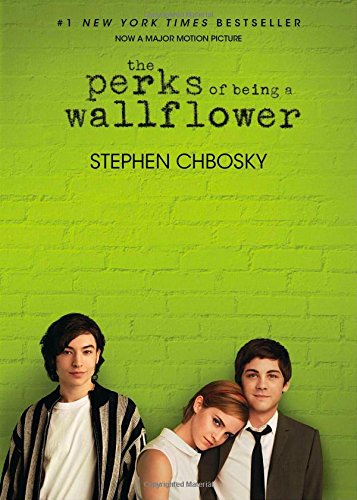Perks of Being a Wallflower by Stephen Chbosky
Talking about some heavy shit and a long story about a night in a haunted house.
Banned
2002 - Fairfax, Virginia: Challenged in school libraries by a group called Parents Against Bad Books in Schools for "profanity and descriptions of drug abuse, sexually explicit conduct and torture".
2003 - Massapequa, New York: Removed as a reading assignment in an elective sociology course at the Massapequa High School because of its "offensive content".
2004 - Montgomery County, Texas: Challenged in Montgomery County Memorial Library System along with 15 other young adult books with gay positive themes by the Library Patrons of Texas.
2005
Arizona - Arizona Superintendent of Public Instruction sent a letter to charter and public school principals and district superintendents asking them to make sure the book is no longer available for containing sexual references, including a scene where a girl is forced to have oral sex with a boy during a party
Merton, Wisconsin: Retained in the Arrowhead HS curriculum as optional reading. Arizona Superintendent of Public Instruction sent a letter to principals and district superintendents asking them to make sure that the book was no longer available to minors or any other students.
2006 - Arlington Heights, Illinois: Retained on the Northwest Suburban HS District 214 reading list along with eight other challenged titles. A newly elected school board member raised the controversy based on excerpts from the books she'd found on the Internet. Chbosky's novel, which contains references to masturbation, homosexuality, and bestiality, got the bulk of the criticism.
2007 - Commack, New York: Challenged on the Commack High School summer reading list because the novel contains a two-page rape scene.
2008 - Portage, Indiana: Removed from Portage High School classrooms for topics such as homosexuality, drug use, and sexual behavior.
2009
Wyoming, Ohio: Challenged on high school district's suggested reading list.
Roanoke, Virginia: Restricted at the William Byrd and Hidden Valley high schools in to juniors and seniors. Freshman and sophomores will need parental permission to check out the book.
West Bend, Wisconsin: Challenged at the West Bend Community Memorial Library as being "obscene or child pornography" in a section designated "Young Adults." The Library board unanimously voted 9-0 to maintain, "without removing, relocating, labeling, or otherwise restricting access," the book in the young adult section at the West Bend Community Memorial Library. The vote was a rejection of a four-month campaign conducted by the citizen's group West Bend Citizens for Safe Libraries to move fiction and nonfiction books from the young adult section to the adult section and label them as containing sexual material.
2011 - Clarkstown, New York: Challenged, but retained, at the Clarkstown North High School despite a parent's complaint about the teen coming-of-age novel, which deals graphically with teenage sex, homosexuality, and bestiality.
2012 - Grandview Heights, Ohio: Challenged as assigned reading at the Grandview Heights High School because the book deals with drugs, alcohol, sex, homosexuality, and abuse.
2013
Tampa, Florida - Challenged on a summer reading list for incoming freshmen at Wharton High School in Tampa (FL) because "it deals with sexual situations and drug use."
Glen Ellyn, Illinois: Removed from 8th-grade classrooms at Hadley Junior High School because of concerns about sexually explicit content and language. In June, the Glen Ellyn Elementary Dicstrict 41 School Board overturned the decision and returned the book to library shelves. Most board members were willing to reinstate the book after assurances from district administrators that a revised parental notification letter would be sent at the start of each school year warning parents that their children could be getting access to sometimes mature content in classroom libraries.
2015 - Wallingford, Conneticut - parent complained about the book’s depiction of homosexuality, sex, masturbation, and a “glorification of alcohol use and drugs,”
2016
Florida - Parents at Pasco Middle School complained about the book's sexual content after a long-term substitute teacher assigned it without reading; after being reviewed, the book was removed from the middle school but retained at the high schools, according to the superintendent
Iowa - The review committee, in a 10-0 decision, has voted in favor of keeping The Perks of Being a Wallflower in Dubuque school curriculums. KWWL reports that at the meeting, over 40 participants stood up and spoke about their personal connection to the book. When the parent who filed for the review, Jodi Lockwood, spoke she asked to rescind her request.
Sources
Doyle, Robert P. Banned Books: Challenging Our Freedom To Read. 2014.
American Bookseller’s Association
ALA Top Ten Frequently Challenged Books
"Dances and Dames"
Kevin MacLeod (incompetech.com)
Licensed under Creative Commons: By Attribution 3.0




